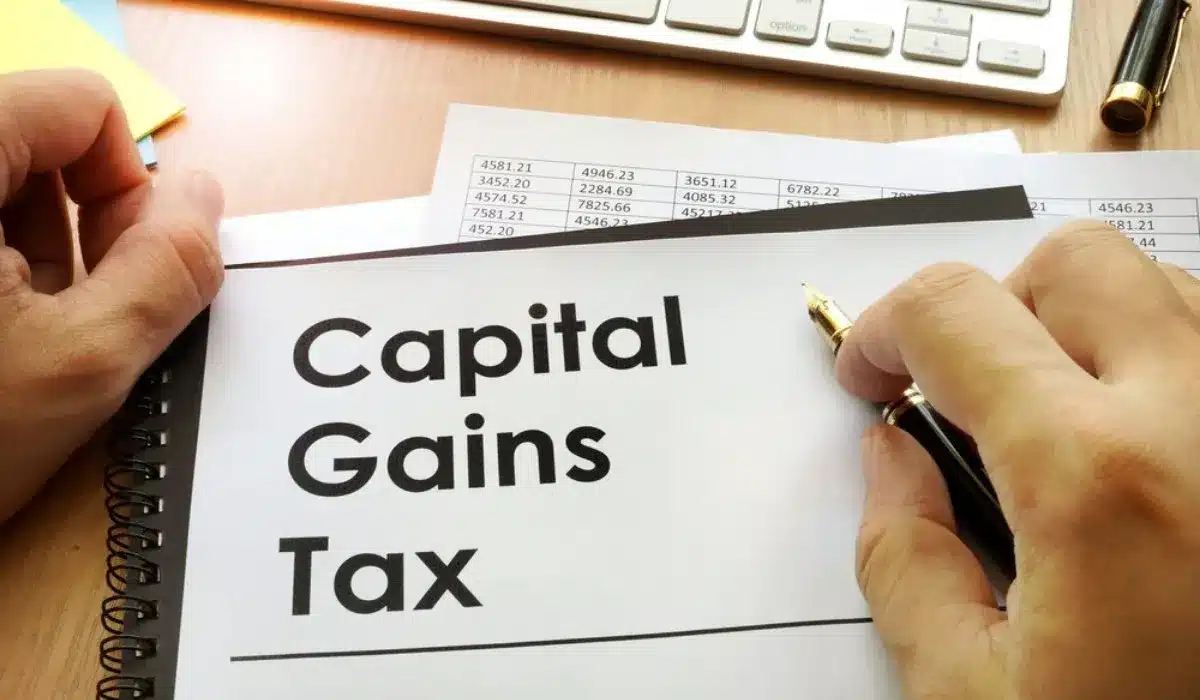About Capital Gains Tax (CGT):
- The term capital gains can be defined as profits accumulated from the sale of any capital asset.
- Land, buildings, house property, vehicles, patents, trademarks, leasehold rights, machinery, and jewellery are a few examples of capital assets.
- This includes having rights in or in relation to an Indian company.
- It also includes the rights of management, control, or any other legal right.
- Depending on the duration, capital gains can either be short-term or long-term.
- Since profits are categorised as an ‘income’, they are liable for taxation, which is known as CGT.
- Such taxes are levied when an asset is transferred between owners.
- This tax applies to both individuals and businesses.
- Taxpaying individuals can use tax-efficient financial strategies to reduce the burden of their CGT.
- There are two types of CGT: Short-term CGT and Long-term CGT
- Short-term CGT:
- Any asset that is held for less than 36 months is termed as a short-term asset.
- In the case of immovable properties, the duration is 24 months.
- The profits generated through the sale of such an asset would be treated as short-term capital gain and would be taxed accordingly.
- Long-term CGT:
- Any asset that is held for over 36 months is termed as a long-term asset.
- Assets like preference shares, equities, UTI units, securities, equity-based Mutual Funds and zero-coupon bonds are also considered as long-term capital asset if they are held for over a year.
- The profits generated through the sale of such an asset would be treated as long-term capital gain and would attract tax accordingly.
Q1: What are preference shares?
Preference shares, more commonly referred to as preferred stock, are shares of a company’s stock with dividends that are paid out to shareholders before common stock dividends are issued. If the company enters bankruptcy, preferred stockholders are entitled to be paid from company assets before common stockholders.
Source: FM’s clarification on capital gains tax could see markets recover on Monday
Last updated on December, 2025
→ Check out the latest UPSC Syllabus 2026 here.
→ Join Vajiram & Ravi’s Interview Guidance Programme for expert help to crack your final UPSC stage.
→ UPSC Mains Result 2025 is now out.
→ UPSC Notification 2026 is scheduled to be released on January 14, 2026.
→ UPSC Calendar 2026 is released on 15th May, 2025.
→ The UPSC Vacancy 2025 were released 1129, out of which 979 were for UPSC CSE and remaining 150 are for UPSC IFoS.
→ UPSC Prelims 2026 will be conducted on 24th May, 2026 & UPSC Mains 2026 will be conducted on 21st August 2026.
→ The UPSC Selection Process is of 3 stages-Prelims, Mains and Interview.
→ UPSC Result 2024 is released with latest UPSC Marksheet 2024. Check Now!
→ UPSC Prelims Result 2025 is out now for the CSE held on 25 May 2025.
→ UPSC Toppers List 2024 is released now. Shakti Dubey is UPSC AIR 1 2024 Topper.
→ UPSC Prelims Question Paper 2025 and Unofficial Prelims Answer Key 2025 are available now.
→ UPSC Mains Question Paper 2025 is out for Essay, GS 1, 2, 3 & GS 4.
→ UPSC Mains Indian Language Question Paper 2025 is now out.
→ UPSC Mains Optional Question Paper 2025 is now out.
→ Also check Best IAS Coaching in Delhi

















